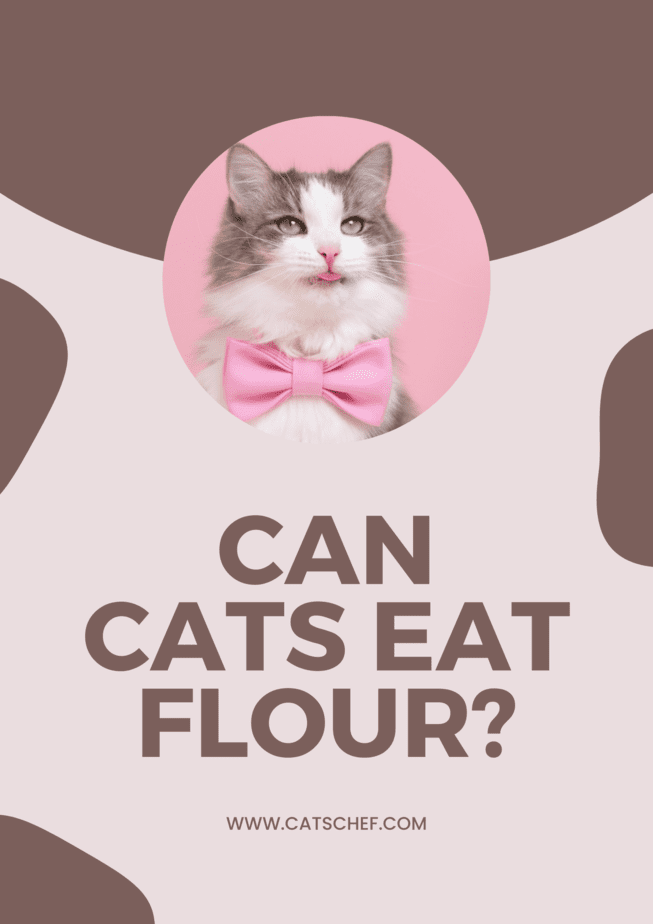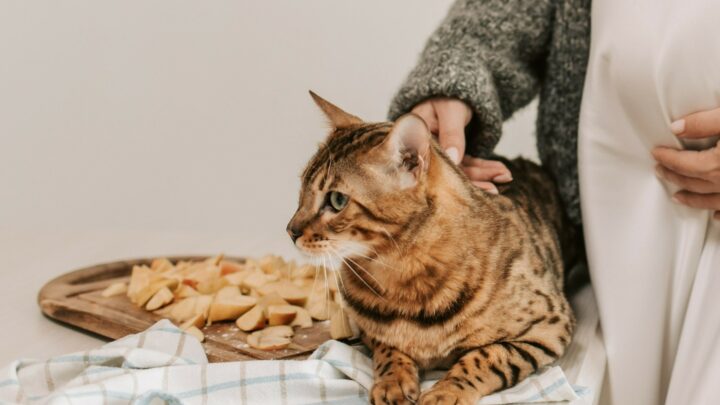Does your cat love going into the kitchen when you’re not looking and baking you a delicious loaf of bread? Of course not, that would be crazy. But, she sure does love to wiggle around your feet and wait for you to make some baked goods. Hence the following question: “Can cats eat flour?”
You don’t expect your precious purrincess to stick her head into a bag of flour, but you’re a little concerned about what flour-based treats might do to her digestive system. Cats aren’t big fans of carbohydrates, and neither are you!
Last time you checked, nobody said you couldn’t give your cat an occasional breadstick or piece of breaded chicken. After all, you have to let her have a taste when she gives you that look. Don’t even pretend you don’t know what I’m talking about.
All jokes aside, it’s completely normal to wonder whether cats can eat the same food we do. Since your cat isn’t likely to eat flour straight out of the bag, you should be more concerned with whether cats can eat flour-based products.
Flour seems to be the main ingredient in everything these days. You might have even seen it on the back of your feline friend’s favorite brand of cat food! You simply assumed it was completely safe, but… Can cats eat flour?
No reason to panic! Cats can eat flour, but that doesn’t mean they should. While an occasional bite or two won’t cause her any harm, you shouldn’t rely on floury treats as a substitute for your cat’s regular meals. When it comes to baked goods, flour tends to be the least of your concerns…
Is flour good for cats?
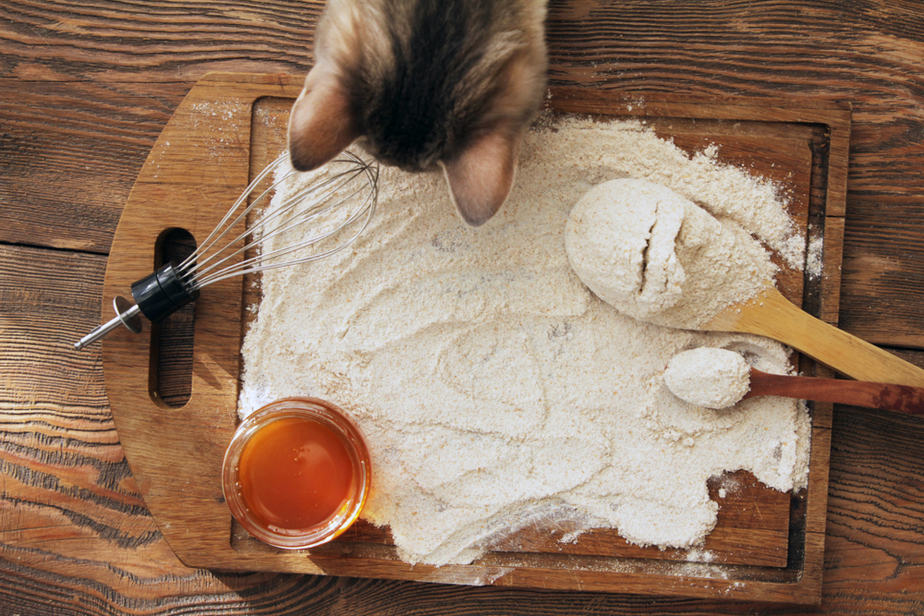
Cats are obligate carnivores which means they thrive on meat and animal-sourced vitamins and minerals. Their digestive systems simply aren’t designed to break down carbohydrates. While most flour isn’t toxic to cats, you shouldn’t include it in your cat’s regular diet.
First things first, there are different types of flour and it’s incredibly difficult to tell which of them gets a passing grade when it comes to feline consumption. If you open your pantry you might come across wheat flour, all-purpose flour, self-raising flour, almond flour… The list goes on and on!
Don’t worry, your mischievous monsters shouldn’t have adverse reactions to any of these types of flour. Grain allergies are pretty common in the feline world, so you should make sure to consult with your vet before making any significant changes to your cat’s diet.
Believe it or not, flour isn’t as harmless to cats as it might seem. If eaten in excessive amounts it could lead to digestive issues, weight management issues, or even allergic reactions.
Let’s be clear, when we’re talking about problems that might arise from consuming flour, we’re mainly focusing on flour-based products. For example, if your picky eater steals one too many cookies she might experience an upset stomach, diarrhea, and vomiting.
Even with this in mind, baked goods are so much better than uncooked dough! You should never leave your cat out of sight when you’re in the kitchen as she might get tempted to give your dough a taste. The uncooked dough could actually kill her!
This type of dough will continue rising in your cat’s stomach ultimately causing a condition known as gastric-dilation volvulus (or bloating). The most common symptoms you might want to keep an eye out for are vomiting, burping, dry heaving, and excessive drooling. Contact your vet immediately!
Can cats eat wheat flour?
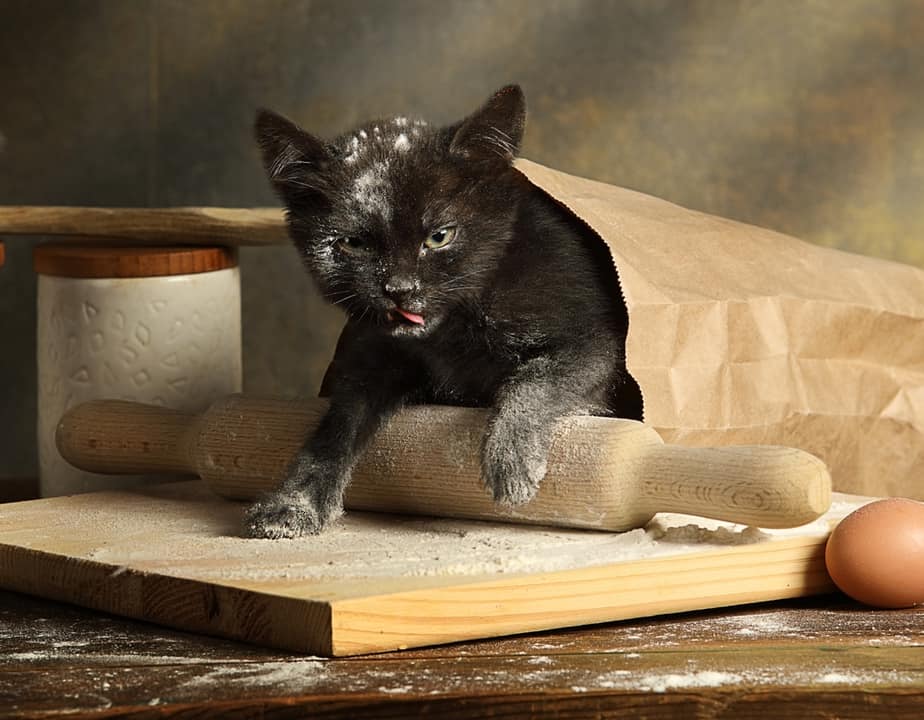
Ding, ding, ding! Wheat isn’t toxic to cats which means your cat can safely consume wheat-based products. Not only that, wheat is packed with fiber which can help regulate your cat’s digestive health. If your cat’s a big fan of wheat flour tortillas or crackers, she should give them a try!
Just like with any other human food, you should be mindful of the amount of wheat flour your furry friend consumes on a regular basis. Animal protein should comprise the main part of her diet, while delicious wheat-based snacks should only serve as an occasional treat.
You should also look for any symptoms of wheat allergies. If your mischievous monster is showcasing signs of constant scratching, consistent licking, and hair loss you might want to contact your vet and stop feeding her wheat treats.
But, if you’re looking for healthy and safe wheat treats for your precious purrincess you might want to look into whole-wheat flour. The whole-wheat flour is made by grinding or mashing the whole grain of wheat. It’s considered one of the healthiest flour alternatives in the feline world.
Some of the best floury treats you can feed to your cat occasionally are whole-wheat bread, whole-wheat crackers, whole-wheat pasta, and pumpernickel. The emphasis is on the word occasionally!
Can cats eat almond flour?
You might drop an almond on the floor and your shameless shadow won’t waste any time. She will devour it within seconds and leave you wondering whether almonds are safe for cats. Don’t worry, these nutty treats aren’t toxic to cats.
While you shouldn’t add them to your cat’s regular diet, there’s no reason why you can’t offer them as an occasional treat. You can apply the same rule to any other almond-based product, including almond flour. If you’re a fan of adding this type of flour to your baked goods, you have nothing to worry about.
Your feline friend isn’t likely to munch on almond flour straight from the bag, but she might be interested in trying some of your delicious baked snacks. Make sure you don’t add harmful ingredients like salt, sugar, herbs, or spices if you’re planning on inviting a certain feline to your tea party.
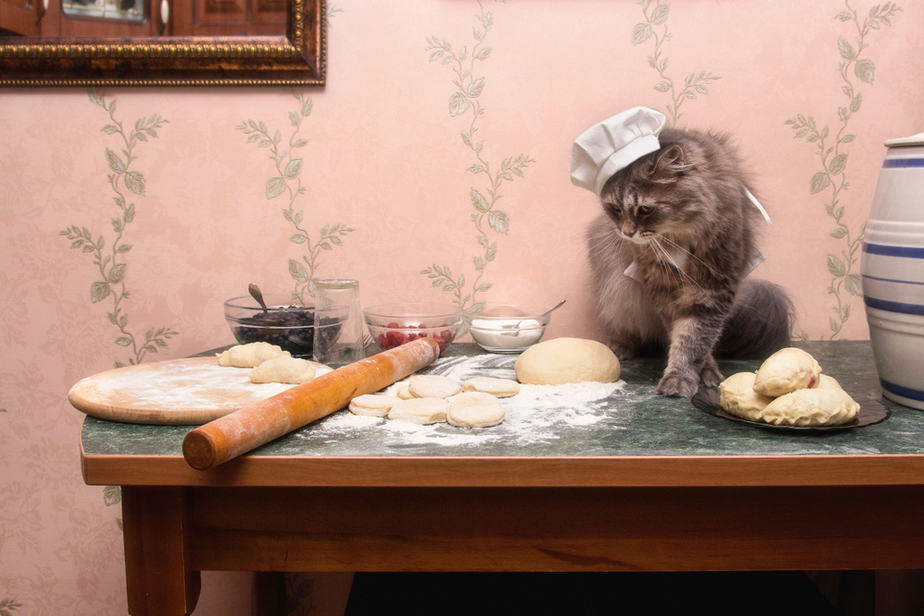
Can cats eat all-purpose flour?
Let’s all agree that cats don’t require floury foods in their diets! Your boisterous beast thrives on meat, animal protein, and animal-sourced vitamins and minerals. If it was the olden times, your cat would be in the field hunting for mice!
But, she’s in your bed waiting for you to feed her some delicious baked goods. It’s no surprise you’re wondering if cats can eat all-purpose flour. Don’t worry, this type of flour is safe for your cat unless she’s had grain allergies in the past.
All-purpose flour is a medium-gluten flour excellent for baking pizza doughs, bread with a thicker crust, pie crusts, and delicious cakes. Trust me, it’s just a different name for the same thing. This type of flour doesn’t differ from plain flour, at all!
If you’re concerned with gluten, you shouldn’t be. Not only is all-purpose flour regarded as a medium-gluten flour, but felines aren’t even sensitive to gluten. Most of them can stomach this type of protein just fine, and if not, they’re probably having an allergic reaction.
All things considered, you can give your precious purrincess an occasional floury treat but you shouldn’t add flour-based good to her regular diet. As long as your cat consumes enough animal-sourced protein, vitamins, and minerals she’ll stay happy and healthy!
